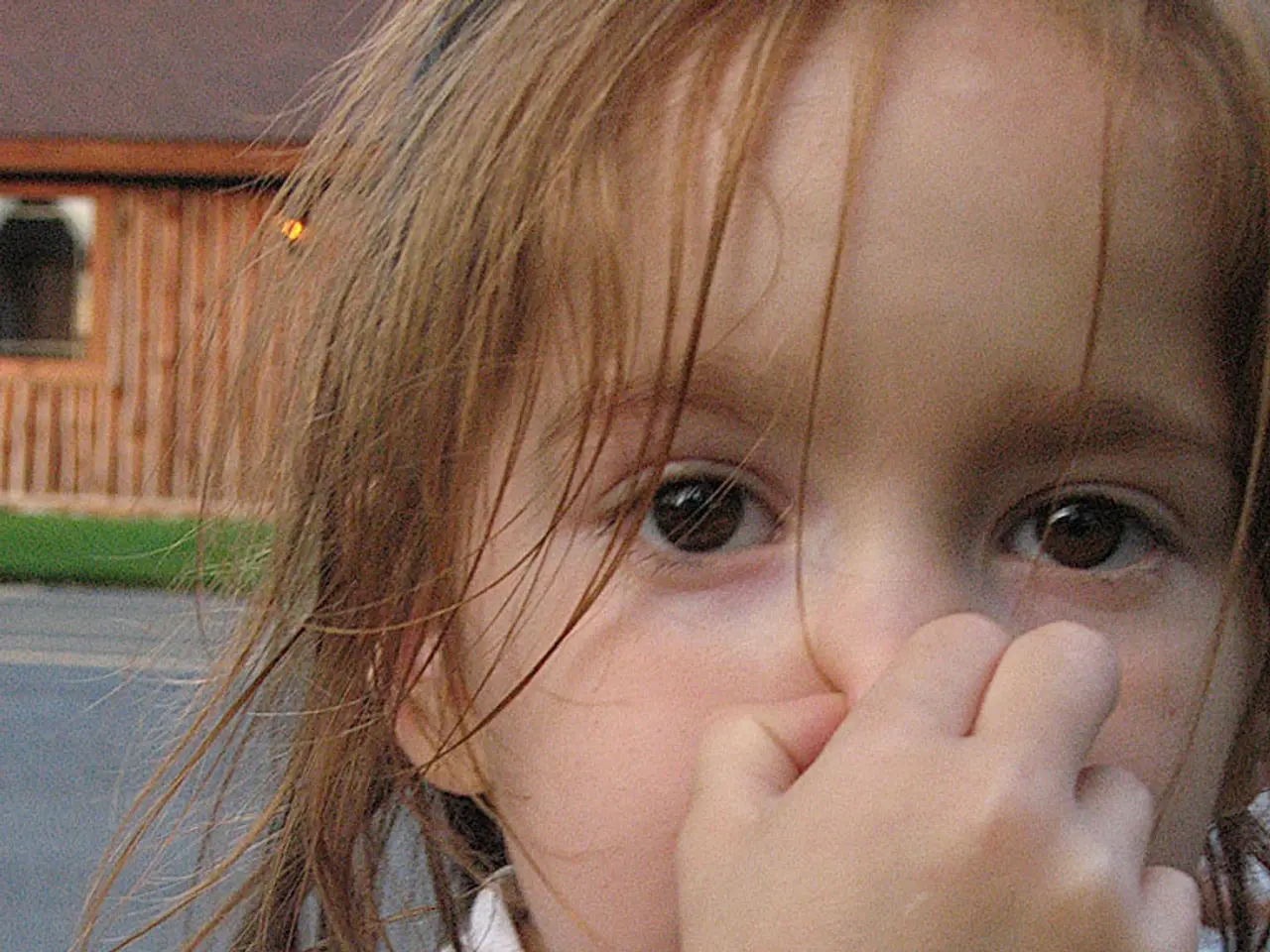Nasal Congestion: Origin and Methods for Alleviation
In the midst of sneezing and a constant drip, a runny nose can be a nuisance. But understanding the root cause of this symptom can help in finding the most effective treatment. Here's a look at common causes and treatments for a runny nose.
A runny nose, medically known as rhinorrhea, can be the result of allergies, colds, or sinusitis. Allergies occur when a person's immune system reacts to a particular substance, or allergen, such as pollen, animal dander, or dust. When it comes to allergies that cause a runny nose, treatments focus on relieving symptoms and reducing inflammation in the nasal passages.
Common treatments for allergy-induced runny nose include antihistamines and corticosteroid nasal sprays. Antihistamines, like cetirizine, loratadine, and fexofenadine, block histamine, a chemical released during allergic reactions, helping to relieve a runny nose, sneezing, and itchy eyes. Corticosteroid nasal sprays, such as fluticasone, budesonide, and triamcinolone, are powerful anti-inflammatory agents that reduce swelling and congestion in the nasal passages, improving symptoms such as nasal stuffiness and runny nose.
Decongestants, either oral or nasal, provide temporary relief from nasal congestion but should be used cautiously and typically for short durations. For long-term relief, allergy shots, or immunotherapy, can be effective for patients with severe allergic rhinitis who do not respond well to medications. Saline nasal irrigation using saline solutions to rinse nasal passages can also clear allergens and mucus, reducing inflammation and alleviating symptoms.
In some cases, a runny nose might be the result of a cold or sinusitis. The common cold can cause a runny nose, along with other symptoms such as sneezing, a congested nose, a sore throat, headaches, and body aches. Sinusitis, an infection of the sinuses that occurs when fluids cannot leave a person's sinuses, allowing germs to develop, can also cause a runny nose. Symptoms of sinusitis are similar to those of a cold, including a runny nose.
If sinusitis is due to a bacterial infection, antibiotics may be prescribed. However, if it's caused by a virus, resting at home should be enough to treat the infection. Avoiding exposure to known allergens is also a crucial strategy for managing symptoms, though this is not always feasible.
If a person's runny nose persists after addressing the underlying cause, it's essential to consult a doctor. A medical professional can determine whether a person's sinusitis is due to a bacterial infection or a virus. In some cases, nonallergic rhinitis, which causes the symptoms of rhinitis without the cause being allergies, might be the culprit. Triggers for nonallergic rhinitis include changes in the weather, exposure to caustic odors or cigarette smoke, and changes to atmospheric pressure.
In summary, the most common and effective treatments for allergy-induced runny nose are antihistamines and corticosteroid nasal sprays, supplemented by other therapies like decongestants, immunotherapy, and saline irrigation depending on severity and individual response. For colds and sinusitis, rest and avoiding irritants can help alleviate symptoms. If a runny nose persists, it's crucial to consult a healthcare professional to determine the underlying cause and appropriate treatment.
- A runny nose, known medically as rhinorrhea, can stem from allergies, colds, or sinusitis.
- Allergies are triggered when a person's immune system reacts to a particular substance or allergen.
- Antihistamines, like cetirizine, loratadine, and fexofenadine, are common treatments for allergy-induced runny nose.
- Antihistamines block histamine, a chemical released during allergic reactions.
- Corticosteroid nasal sprays, such as fluticasone, budesonide, and triamcinolone, help reduce swelling and congestion in the nasal passages.
- Decongestants, either oral or nasal, offer temporary relief from nasal congestion but should be used carefully and for short periods.
- Allergy shots, or immunotherapy, can be effective for patients with severe allergic rhinitis who respond poorly to medications.
- Saline nasal irrigation can clear allergens and mucus, reducing inflammation and easing symptoms.
- The common cold can lead to a runny nose, accompanied by sneezing, a congested nose, a sore throat, headaches, and body aches.
- Sinusitis, an infection of the sinuses, can also cause a runny nose, with symptoms resembling those of a cold.
- Antibiotics may be prescribed for bacterial sinusitis, while rest and avoiding irritants can help treat viral sinusitis.
- If a person's runny nose persists, they should consult a doctor to determine the underlying cause and appropriate treatment.
- Nonallergic rhinitis might be the cause if a person's runny nose persists after addressing the underlying cause.
- Triggers for nonallergic rhinitis include changes in the weather, exposure to caustic odors or cigarette smoke, and changes to atmospheric pressure.
- Chronic conditions like chronic kidney disease, COPD, type-2 diabetes, and cancer can also cause symptoms similar to a runny nose.
- Approaches for managing chronic diseases often involve a combination of medical-conditions management, workplace-wellness programs, and lifestyle changes.
- In some cases, therapies and treatments for chronic conditions may include cbd, nutrition, and fitness-and-exercise regimens.
- Skin conditions, such as hives, psoriasis, and rheumatoid arthritis (a type of autoimmune disorder), can also manifest symptoms similar to a runny nose.
- Therapies for skin conditions might involve medications, topical creams, or light therapies.
- Eye-health issues like conjunctivitis and dry eyes may also present with symptoms similar to a runny nose.
- Ear-health concerns, such as hearing loss or ear infections, can occasionally resemble a runny nose.
- Alzheimer's disease, known as Alzheimers-disease, Mental-health disorders, dementia, and neurological-disorders can present with cognitive changes and other non-nose-related symptoms.
- In general, maintaining overall health-and-wellness through regular exercise, proper nutrition, mental-health support, and medical management of underlying conditions is crucial for preventing and treating a wide range of health issues.




